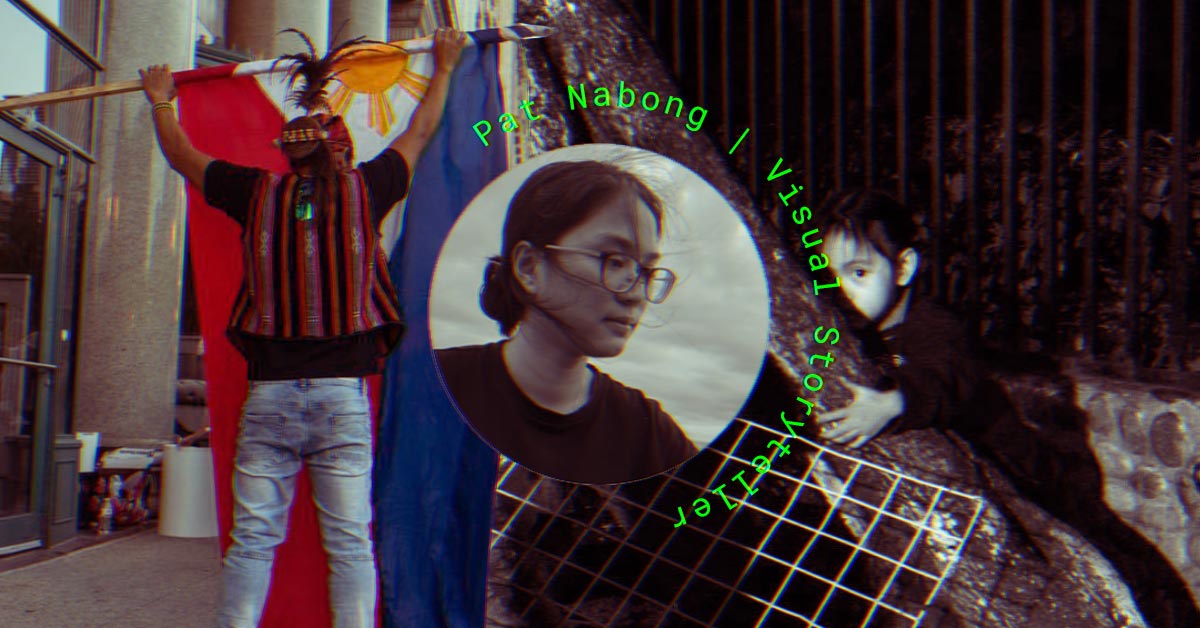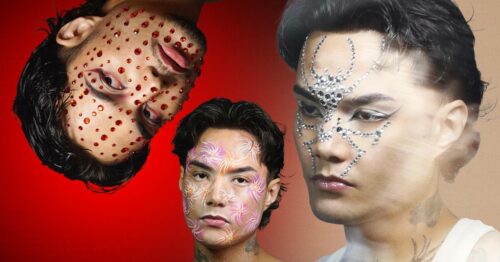When living away from home reinforces one's identity
I remember bringing my best friend to the airport on the eve of her birthday. On a (very emotional) Facebook post, I wrote: “My love for you will continue to grow as vast, as wide and as deep as the distance between us.” 13,075 km to be more precise. It's been three years, and I still remember it like it was yesterday. With a heavy heart, I let her go, to plant herself in uncharted territory where I was certain she'd thrive—and thrive she did.
Pat Nabong is a visual storyteller who moved to the United States in 2016 to pursue a master’s degree in journalism to grow outside of her comfort zone, gain perspective on life and, ultimately, be independent. As a photographer, videographer and writer—wrapped in one convenient, awe-inspiring woman—her work focuses on the intersection of identity, culture and social justice.
She earned her master’s degree in journalism at Northwestern University’s Medill School of Journalism. At present, she is a Gwen Ifill fellow at the International Women’s Media Foundation. She’s won several awards for her photo essays and short documentaries; she was one of the 2018 nominees for the World Press Photo Foundation’s Joop Swart Masterclass. Additionally, she’s completed several fellowships, including a student fellowship with the Pulitzer Center on Crisis Reporting and City Bureau, a civic journalism lab in Chicago.
At this season in her life, she is exploring the meaning of “home” and embracing the idea of duality. I chatted with her to get her thoughts on the matter (and, of course, Piolo Pascual.)
RELATED: The Woes and Wonders of Moving Abroad
Wonder: What do you miss about the Philippines?
Everything—from the food to my family, to the life that I lived when I was there. Life here is very different, and it’s not as easy or as glamorous as movies make it out to be.
W: How are you embracing duality as a Filipino who has lived in Manila most of her life and now works in the United States?
Many people think in binaries. It’s easier for people to process who we are when our identities are boxed into labels. But our identities are the sum of our lived experiences, and it’s difficult to say you are just one or the other. I often feel like I am in both places at the same time. I am physically here but mentally, emotionally, a part of me is there. While I am often surrounded by people from different cultures and countries (which is great), I constantly seek out new Filipino communities and try to nurture the ones that I have, but it wasn’t always like that. I’ve found that not having that can be very isolating especially when you live in a place where majority of those around you don’t look like you. Luckily, my work takes me to a lot of Filipino events.
W: How do you relieve homesickness?
I cope in many ways. I call my parents a lot or go to Filipino community events. Sometimes, I ride an hour-long bus ride to Seafood City, the largest Filipino grocery store in the Midwest, and buy barbecue (American barbecue never comes with a stick), Marty’s Crackling, Butter Cream Crackers and Voice crackers (my favorite). Recently, I discovered the magic of TFC online which gives me access to Filipino movies, so I watch rom-coms and Antoinette Jadaone films while eating my grocery haul.
W: How has your relationship with Pinoy media changed upon living abroad?
Hindi ako masyadong nanunuod ng Pinoy rom-coms dati kasi [para] sa mga classmates ko noong high school, baduy ‘yun. (I didn't watch Pinoy rom-coms before because my classmates in high school thought it was tacky.) Napaka-Westernized ko nu'n and I only realized how problematic that was when I came here. It’s funny because when I was a film student at the University of the Philippines Diliman, I was taught to be critical of mainstream movies.
I see myself more in Pinoy movies now because I can culturally identify with the characters and references. It’s been interesting to see the tropes and common themes that repeat themselves in Pinoy movies. I realized that a lot of them touch on the immigrant experience in one way or another, whether it’s the main plot or just the backstory of a character. That’s something that makes Filipino movies distinct from American ones. I never thought I’d be on the other side of the world and be able to relate to that.
https://www.instagram.com/p/BqOJ1QSFnU9/
W: What are your newfound favorite Pinoy films?
After watching almost every Piolo Pascual movie available on TFC, I can say that I love Starting Over Again. Alone/Together also really hit me hard.
W: As a student fellow for Pulitzer Center, you created a multimedia project entitled The Psychological Toll of Duterte's Drug War: Mental Health in Low-Income Communities. What made you do it?
We pride ourselves in being resilient, but I think that resilience and the stigmatization of mental illness (among other cultural, political and socio-economic factors) can also get in the way of conversations about trauma, which we don’t talk about enough in our communities. I pitched that project to the Pulitzer Center in 2016 because that was an important conversation to start then and because the impact of the drug war was concerning, to say the least. There’s a lot of healing that needs to happen in our communities, and I hoped that reporting on the psychological toll of the drug war would help bring about solutions for survivors and affected families.
W: Did you also create it as not to be desensitized to the reality that Filipinos experience day-to-day—as a Filipino living abroad?
I don’t think I was ever desensitized to the way people live back home. In many ways, I’m still very connected to what’s happening in the Philippines. I read the news regularly and try to give back in ways that I can. Yes, I do have the privilege of looking at what’s happening from afar, being physically detached from it, but I feel for my country every day. This might sound dramatic, but on many days, I grieve for it—for what is happening back home. There is always a tinge of guilt that comes from feeling that you're not doing enough. Strangely, in some ways I feel even more connected to the Philippines now that I have lived abroad for several years. Being away from home for such a long time has reinforced my identity.
W: Do you see yourself staying in Chicago for the long haul?
My dream is to be based in the U.S. and in the Philippines. I really want to go back home and tell stories of Filipinos there, but it’s also really important to me to be able to continue telling stories about the Filipino diaspora and other cultural stories and social justice issues here.
Pat Nabong is a Filipina photographer, videographer and journalist based in Chicago who is dedicated to challenging stereotypes and bridging gaps through visual storytelling. Her work focuses on the intersections of culture, identity and social justice issues. She has collaborated with organizations like ProPublica, The Chicago Sun-Times, WBEZ (Chicago’s local NPR station), Chicago Magazine, The Weather Channel, Seeker/Discovery Channel, Rappler, ABS-CBN International’s Balitang America and Union of Catholic Asian News.
You can find her work over at patnabong.com and follow her on Instagram.
RELATED: Why Living Alone Is Such A Good Idea
Art Alexandra Lara


















